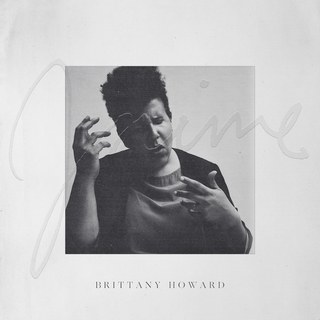
News
Cambridge Residents Slam Council Proposal to Delay Bike Lane Construction

News
‘Gender-Affirming Slay Fest’: Harvard College QSA Hosts Annual Queer Prom

News
‘Not Being Nerds’: Harvard Students Dance to Tinashe at Yardfest

News
Wrongful Death Trial Against CAMHS Employee Over 2015 Student Suicide To Begin Tuesday

News
Cornel West, Harvard Affiliates Call for University to Divest from ‘Israeli Apartheid’ at Rally
On ‘Jaime,’ Brittany Howard’s Voice is Lost in the Noise
2 Stars

Brittany Howard, the explosive blues-rock lead singer of Alabama Shakes, released her debut solo album “Jaime” on Friday. Previously, Howard blessed us with the hauntingly beautiful chords of “Sound & Color,” the electrifying “Gimme All Your Love,” and went on to win four Grammy awards. This album, a tribute to her late sister, covers topics from racism to addiction, with mixed success. Falling prey to disjointed composition, “Jaime” pushes the envelope so far that its own innovation turns to chaos, overwriting Howard’s message.
Though the points Howard attempts to make are complex and important, her delivery is less so. The Alabama Shakes singer takes on racism and life in a multi-racial family in the South in “Goat Head,” which begins with an intro that belongs on a lofi-music-to-study-to playlist that takes an unnecessary minute and a half before deciding to grace us with lyrics. There is a storied history of artists using metaphors and imagery to better express their experience, but the first lyrics of this song being “see, tomatoes are green” undermine the emotion of the song. Howard then moves into describing her multiracial family. The lyrics “'Cause mama is white / and daddy is black / when I first got made / guess I made these folks mad are predictable. As a biracial woman myself, I thought that the issue should have been approached with more time and respect. As this is one of the first songs I’ve listened to that specifically addresses the mixed experience, I craved more depth than the messy repetition of “Goat head in the back” and the statement “I knows my colors.” The background did the song no favors, as Howard proceeded to end the song with the line “Goat head in the back” repeated no fewer than nine times.
This extreme repetition continues throughout the album. Notably, the lead single of the album “History Repeats” is a literal take on its name. The end of the song trails off repeating “history repeats and we defeat ourselves come on everybody, one more time again.” The grating chords that open the song confuse the senses and undermine the charm that Howard displays when performing with Alabama Shakes. “History Repeats” is full of funk-inspired beats and lyrics that overwhelm the listener, building up to a drop that never occurs.
While Howard struggled to balance her sonic and lyric choices, she hit the perfect balance on several tracks. Her rich voice soars in “Short and Sweet,” where the use of simple acoustic guitar allows Howard’s ode to love to shine. Her voice floats on the melody in a way reminiscent of Nina Simone. “Baby,” ignoring the awkward sound check intro, is a standout track. It does what Howard does best, resulting in a song that, while still fresh, already feels like a classic.
This review would be incomplete without a consideration of Howard’s foray into spoken word poetry on “13th Century Metal.” She took the risk of letting the lyrics and music do all the talking instead of her powerhouse pipes. The overlaid synth and drums feel like a cortisol spike. The meaning was there, but the emotion never came close to her voice. Instead, she covered it with pandemonium.
In the past, Howard’s experimental forays into funk and birthed Grammy winners like “Don’t Wanna Fight,” but in “Jaime” this talent is lost in a barrage of noise. Howard takes bold risks that, unfortunately, do not pay off. The musical framework of the album fails to complement the power of its author’s voice. Flipping back-and-forth from a fresh take on funk to complete disarray, “Jaime” fails to center Howard’s vocal ability amid its high-risk musical choices.
Want to keep up with breaking news? Subscribe to our email newsletter.
